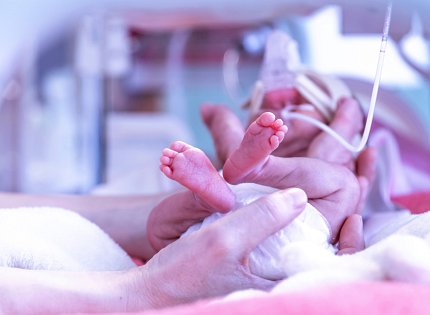Survival Rate Increases for Extremely Preterm Infants

Photo: Shutterstock/Peter Bako
The survival rate of extremely preterm infants born from 2013 through 2018 in a large network of U.S. research centers improved to 78.3 percent, compared to 76 percent for infants born in the network from 2008 to 2012, according to NIH-funded researchers.
Their study included more than 10,000 infants born at 22 to 28 weeks of pregnancy at 19 centers of the Neonatal Research Network funded by NICHD. The results appear in the Journal of the American Medical Association.
In the study, survival was greater for infants born later in pregnancy, with 94 percent of those born at 28 weeks surviving to hospital discharge and roughly 11 percent born at 22 weeks surviving to discharge. Survivors were assessed at 2 years corrected age—a child’s chronological age, minus the number of weeks the child was born preterm.
Slightly more than 8 percent had moderate to severe cerebral palsy, 1.5 percent had vision loss in both eyes, 2.5 percent needed hearing aids or cochlear implants and 15 percent required mobility aids such as braces, walkers or wheelchairs. Nearly 49 percent had no or only mild neurodevelopmental impairment. About 29 percent had moderate neurodevelopmental impairment and roughly 21 percent had severe neurodevelopmental impairment.
The causes of preterm birth are only partially understood. The researchers noted the infants were treated at academic medical centers and their health outcomes may not reflect those of the whole U.S. preterm population.
